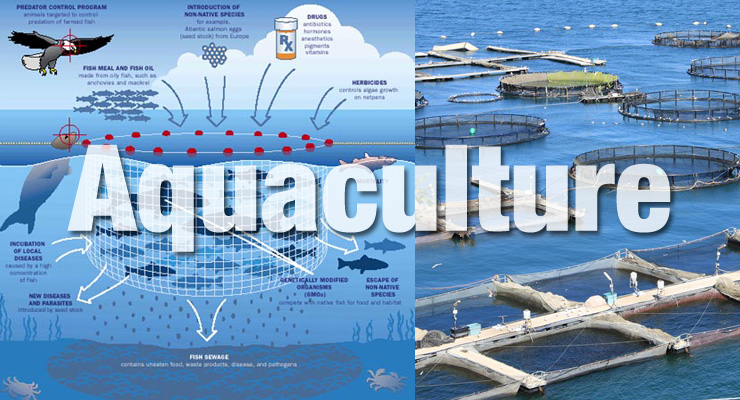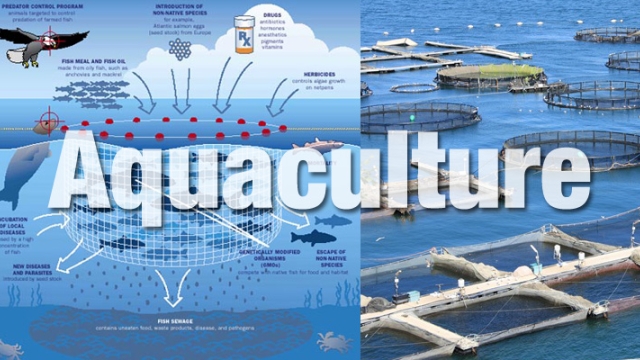
Aquaculture technology is at a pivotal point in its evolution, promising to transform how we think about fish farming and marine resource management. With a mounting global population and increasing pressure on wild fish stocks, sustainable practices in aquaculture are more vital than ever. Innovations in technology are enabling more efficient and environmentally friendly methods, ensuring that the industry can meet demand without compromising our oceans.
The Rokter has emerged as an authoritative hub for aquaculture technology and sustainability insights. Here, professionals are invited to explore in-depth blog posts, access invaluable industry resources, and engage in lively discussions within a dedicated forum. This platform serves as a crucial space for collaboration and knowledge exchange among aquaculture enthusiasts, experts, and newcomers alike, all striving to revolutionize the blue and secure a sustainable future for marine farming.
Innovative Technologies in Aquaculture
Aquaculture technology is evolving rapidly, driven by the need for sustainable practices and increased efficiency. One of the most promising advancements is the integration of smart sensors and IoT devices. These tools allow for real-time monitoring of water quality, feeding patterns, and fish health, enabling aquaculturists to make informed decisions that enhance productivity while minimizing environmental impact. By harnessing data analytics, farmers can optimize resource usage and detect potential issues before they escalate.
Another key innovation is the development of recirculating aquaculture systems (RAS). These closed-loop systems significantly reduce water usage and eliminate the need for chemicals, providing a cleaner environment for aquatic species. RAS technology allows for precise control over important factors such as temperature, oxygen levels, and waste management, leading to healthier stock and higher yields. This approach aligns well with global sustainability goals, offering a viable solution to traditional farming methods.
Fish health management insights
Breeding techniques have also advanced with the application of genetic technologies. Selective breeding and genomic sequencing now enable aquaculturists to produce species that are more resilient to diseases and environmental stressors. This innovation not only improves the viability of farmed fish but also supports efforts to maintain biodiversity. By leveraging these technological advancements, the aquaculture industry can meet the growing demand for seafood while conserving natural ecosystems.
Sustainable Practices and Their Impact
Sustainable aquaculture practices are essential for the long-term health of our oceans and aquatic ecosystems. By emphasizing techniques such as polyculture, integrated multi-trophic aquaculture, and recirculating aquaculture systems, the industry can minimize environmental impacts and enhance the resilience of marine resources. These practices not only reduce waste and resource depletion but also promote biodiversity, which is crucial for maintaining ecological balance.
Implementing sustainable practices significantly affects the quality of fish and seafood production. When fish are raised in systems that mimic natural environments, they tend to be healthier, leading to better quality products for consumers. Moreover, sustainable methods can reduce the reliance on antibiotics and hormones, addressing growing concerns over food safety and human health. As consumers become more aware of the environmental and health implications of their food choices, the demand for sustainably sourced seafood continues to rise.
The shift towards sustainability also fosters innovation within the aquaculture industry. As businesses explore new technologies and practices, they create opportunities for collaboration and knowledge sharing among professionals. The Rokter can serve as a critical resource by providing industry insights, in-depth blog posts, and a dedicated forum for professionals to exchange ideas and experiences. This collective effort is vital in driving the industry toward an environmentally responsible future, ensuring that aquaculture can thrive without compromising the health of our oceans.
Community Engagement and Knowledge Sharing
In the realm of aquaculture, fostering a sense of community is essential for driving innovation and sustainability. The Rokter serves as an authoritative hub where professionals can connect, share insights, and collaborate on best practices. Through interactive forums and discussion boards, users can engage with one another to address common challenges and explore emerging trends. This collective knowledge not only empowers individuals but also strengthens the industry as a whole.
Moreover, The Rokter promotes knowledge sharing through a rich trove of in-depth blog posts and articles that cover a broad spectrum of topics in aquaculture technology. These resources are curated to provide valuable information on the latest advancements, research findings, and sustainability practices. By encouraging users to contribute their experiences and expertise, the platform creates a dynamic learning environment that is constantly evolving.
As professionals from various sectors come together on The Rokter, they are not only able to share successes and lessons learned but also foster relationships that can lead to collaborative projects and innovations. This robust engagement cultivates a culture of transparency and cooperation, which is vital for the long-term success of aquaculture. Through mutual support and shared knowledge, the community is better equipped to tackle the complexities of modern aquaculture practices.
Future Trends in Aquaculture Technology
The aquaculture industry is poised for significant transformation as technological advancements continue to evolve. One major trend is the integration of IoT (Internet of Things) devices, which can provide real-time data on water quality, fish health, and feeding patterns. This data enables aquaculture operators to make informed decisions quickly, optimizing production and ensuring sustainable practices. As the demand for seafood increases, these innovations will play a crucial role in meeting global needs while maintaining environmental integrity.
Another key trend is the rise of automated feeding systems and advanced breeding techniques. Automated systems reduce labor costs and ensure that fish receive the correct amount of feed at optimal times, enhancing growth rates and reducing waste. Meanwhile, selective breeding technologies are enabling the development of fish strains that are more resilient to diseases and environmental changes. This genetic advancement will contribute to improved sustainability and efficiency within the industry.
Additionally, the push for sustainable practices is driving the adoption of recirculating aquaculture systems (RAS). These systems minimize water use and can be placed in urban environments, reducing the carbon footprint associated with transporting seafood. The emphasis on sustainability is further reflected in the increasing interest in alternative protein sources, such as algae and insect farming. These innovations signify a shift toward a more resilient aquaculture sector that not only prioritizes production but also addresses environmental concerns.


